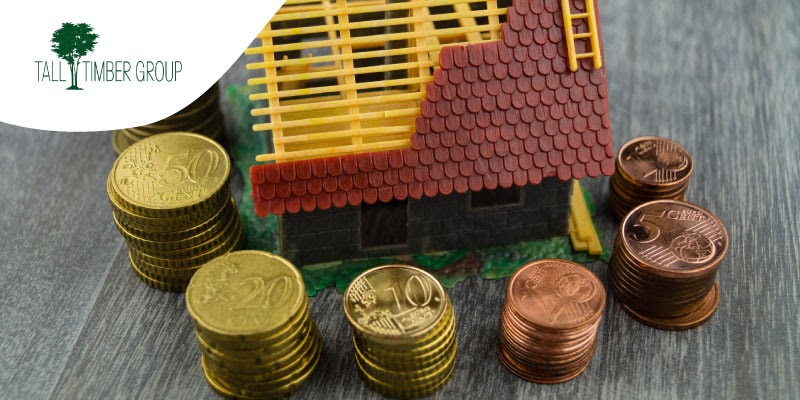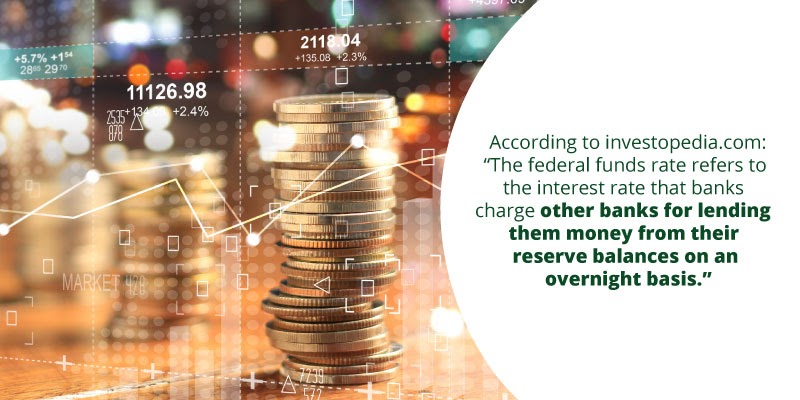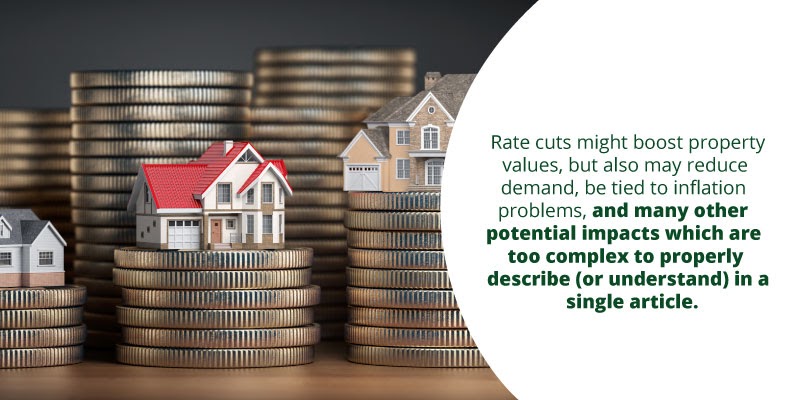
Like it or not, federal regulations play a huge role in commercial real estate investment, construction, sales, and everything in between. Perhaps no singular federal policy has more of a direct impact than the federal reserve cutting or raising the federal funds rate. Separate but related to the federal discount rate, the federal funds rate dictates interest charged on a number of loans. The fed has recently decided to once again cut the federal funds rate in late 2019/early 2020. The impact on real estate will certainly be felt, but this is nothing new.
With this in mind, today we define the federal funds rate, discuss the details of the latest rate cuts and a brief history of past cuts and hikes, and finally identify how these changes will likely impact the commercial real estate sector.
Understanding the Federal Funds Rate

According to investopedia.com: “The federal funds rate refers to the interest rate that banks charge other banks for lending them money from their reserve balances on an overnight basis. By law, banks must maintain a reserve equal to a certain percentage of their deposits in an account at a Federal Reserve bank. Any money in their reserve that exceeds the required level is available for lending to other banks that might have a shortfall.”
The federal funds rate can be changed as many as eight (8) times per year as decided by the Federal Reserve. The actual rate can be influenced by buying and selling government bonds or other investment securities. The federal funds rate is determined separately from the federal discount rate, but these two figures generally have a symbiotic relationship.
As part of the regulations surrounding the federal funds rate, banks and other financial institutions are required to meet reserve requirements that must include non-interest bearing accounts. This secures short term loans and provides assurances for financial institutions and loan recipients alile.
Details on the Latest Fed Funds Rate Cuts
Normally three straight fed funds rate cuts is not a great sign for the economy overall. The last time this many consecutive rate cuts took place was in 2008 amidst the housing crisis and Great Recession. The latest cuts move the effective rate from 1.75% to 1.5%.
Generally, cutting the federal funds rate is intended to spur economic growth. These cuts come at a time when more observers are predicting that a recession is looming in the next year or two. Yet not everything is doom and gloom. Opportunist investors can take advantage of low fed funds rates to secure loans, make investments, and much more. Individuals who are looking to refinance mortgages or open home equity loans are perhaps the biggest winners from these fed rate cuts.

Lower fed funds rates only impact those who are looking to open new loans or refinance existing loans. For this reason, pre-existing loans and mortgages will be unaffected by the cuts. This essentially means that those who are locked into unfavorable loan situations might want to jump on this opportunity to refinance.
How Federal Rate Cuts Impact Commercial Real Estate
There are several ways in which federal rate cuts might impact commercial real estate, including:
Interest rates can impact local property values
Commercial real estate does not exist in a vacuum.The estimated values of surrounding properties go a long way towards CRE valuations. Federal funds rate changes can impact the calculations used to determine property values. Therefore, a change in interest rate can materially impact the value of commercial real estate properties without any other changes.
Interest rates, cap rates, and the spread
Commercial real estate investment can sometimes rely on what is known as “the spread”. The spread is determined by finding the difference between the cap rate and the finance rate. As federal funds rates influence finance rates, this can make CRE investments more or less attractive over time.
Federal funds rates cuts have a trickle down effect
It would be convenient to say that fed rates have a 1-1 impact on commercial and other forms of real estate. In reality, the relationship is far more complicated. Consider the fact that rate cuts are tied closely to poor economic performance. This in and of itself has reduced the positive impact of past rate cuts. Current and future rate cuts seem like they should have a straightforward, positive impact on commercial real estate investment. This simply is not always the case. Rate cuts might boost property values, but also may reduce demand, be tied to inflation problems, and many other potential impacts which are too complex to properly describe (or understand) in a single article.

Going Forward
It is yet to be determined whether the recent trend of consecutive rate cuts will continue as 2020 progresses. Rates are already very low, and can be reasonably expected to stagnate or bounce back in the future. This may also be reactive based on overall economic performance. Metrics point to mild recession in the next few years. How this will impact the federal funds rate will certainly continue to be a major factor in the commercial real estate investment space.



